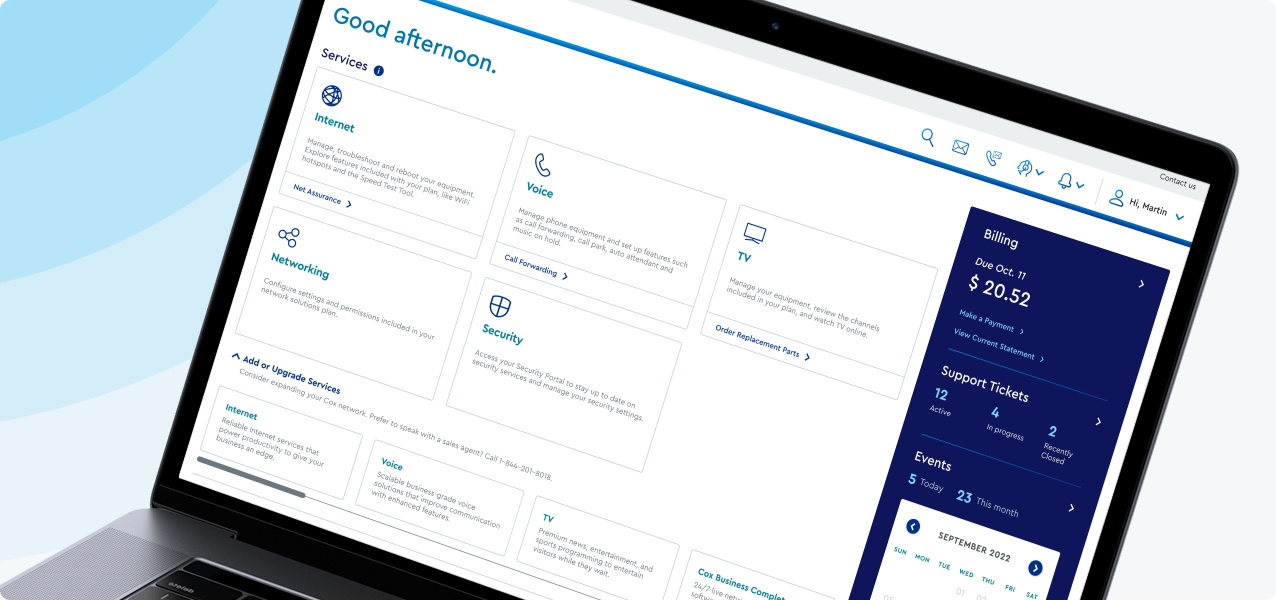Cox Communications is dedicated to protecting our customers' internet experience. When Cox detects that one or more of your devices or computers is infected with malicious software, also known as malware or viruses, we send you an email to your preferred email address. For our Residential Cox Internet customers, we also send notifications to any Cox Email addresses listed on your account.
Handling Viruses and Malware
Cox recommends several actions to help you resolve virus or malware infections.
- Ensure that you run regular updates as recommended by your operating system or software manufacturer.
- For our Cox Business Internet customers, you have access to a Trellix-powered security suite. Contact us to learn more.
- Be sure to scan for viruses on all devices connected to your Cox Internet service. The computer or device that received the email notification may not be the infected device or computer.
Because no single security software is 100 percent effective, Cox recommends that you run additional security software. There are many anti-virus programs available, both free and for purchase. The following are a few examples of additional software that can remove infections.
- Microsoft Safety Scanner - Microsoft Safety Scanner is a scan tool designed to find and remove malware from Windows computers.
- Norton Power Eraser - This tool is useful if your computer has become a victim of crimeware that regular virus scans cannot detect.
While this software may be helpful to you, Cox provides support only for Cox Security Suite Plus. Contact the software manufacturer for assistance.
If you need some extra help, Cox offers premium technical support. For our Residential customers, visit www.cox.com/completecare to reach Cox Complete Care or call 877-COX-ASST (269-2778). For our Cox Business customers, visit www.cox.com/business/completecare or call 866-419-4958.
Malware and Virus Types
You may receive an email notification regarding the following malware, viruses, or system vulnerabilities. Use the table below to learn more.
| Virus, Malware, or Vulnerability | Details |
|---|---|
| Boa | This is a security issue related to devices that contain a Boa web server. Boa web servers are commonly found in household items, Internet of Things (IoT) devices such as routers, access points, thermostats, and security cameras. They are frequently targeted by hackers and pose a risk to many IoT devices. |
| Genesis | A government agency advised that some of our customers' @cox.net email addresses were discovered on the Genesis Marketplace. This is due to various forms of malware on personal devices which collected account credentials. |
| Chopper | Chopper, also known as ASP/Chopper or other similar phrases, exploits an Outlook Web access vulnerability with a web shell that can enable remote administration of an infected computer. |
| Valak | Valak is malware that downloads additional malware to a computer for the following purposes.
|
| Zbot | Zbot is a Backdoor that targets the Windows operating system. This malware is a variant of the Zeus banker Trojan and is also known as the Panda Banker. It identifies itself to the control server and obtains instructions for further operations, such as the following.
|
| Esendi.A | Esendi.A is a severe malware with multiple purposes, such as the following.
|
| Open DNS Resolver | Open DNS Resolver is a setting in which a router, computer, or other internet-ready device provides recursive name resolution for clients outside of its administrative domain. This setting is typically triggered as a result of a virus or malware infection and results in the following issues.
|
| Mirai | Mirai is malware that turns networked devices running Linux into botnets to do the following actions.
|
| Qsnatch | Qsnatch is malware designed to perform the following.
|
